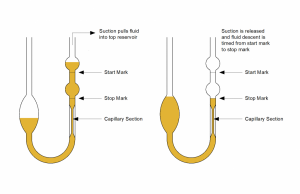What is an Ecommerce Niche?
 An ecommerce niche is a distinct segment within any given market and often an area that is overlooked by other businesses. Examples of niches include handmade items, pet food or pet owners, trendy t-shirts, eco-friendly products, beauty products, gadgets, or other trending products. By narrowing down how you look at a market, you are able to find areas and sections that haven’t been tapped into. Get complete knowledge of E-Commerce Niche by PK Halder.
An ecommerce niche is a distinct segment within any given market and often an area that is overlooked by other businesses. Examples of niches include handmade items, pet food or pet owners, trendy t-shirts, eco-friendly products, beauty products, gadgets, or other trending products. By narrowing down how you look at a market, you are able to find areas and sections that haven’t been tapped into. Get complete knowledge of E-Commerce Niche by PK Halder.
When you find these niches you can build a business that has a good chance of succeeding — you aren’t necessarily going to be going up against the big boys, and you can find and profit from the areas that others have neglected.
5 Strategies for Finding Your Niche
So how do you go about finding your niche? You don’t want to find yourself staring at a brick wall, you need to have some tactics up your sleeve so that you can get started quickly.
1. Look at current trends.
You can notice trends anywhere or use Google Trends to see when people have been searching for something. In addition to Google Trends, some of the places I like to look for upcoming nor new niche opportunities are in tools like Semrush and Sistrix. Coupled with Google Trends data, this gives you some compelling data to act on.
2. Find a need.
There are a few reasons people would buy a niche product. They either can’t get it close to them, or the current alternatives aren’t good enough.
Selling products in an area where there is less competition can be the key to success for your small business.
There is a well-known phrase that says “necessity is the mother of invention” and it couldn’t be more accurate than it is here.
3. Look at things you’re passionate about.

It’s hard to run any business on something you don’t care about, so see if there is anything in your life that may be missing a niche product.
Being passionate about something arms you with the knowledge that your competitors (if there are even any at all) don’t have. It allows you to create better content around the products and also better longtail content for blog posts and the other content that Google likes to see on a site.
4. See what others are searching for.
Keyword research can help out with this. Others may be searching “dog food without meat” or “vegan dog food” but competition on that keyword could be very low, meaning there is a chance their needs aren’t being fulfilled. While the Google Keyword Planner tool can be helpful here, you will need an Adwords account to get the best data. But don’t worry there are alternatives.
Keyword Keg is excellent for this kind of research and provides additional data that you don’t get in Keyword Planner. One particularly helpful metric is CTR Scope, this gives you an indication on how likely a user is to click on an organic result over a paid result.
At the end of the day, paying attention to search engine optimization (SEO) keyword terms can give you impactful insights that will help you find the right niche to sell in.
5. Scan through the category.
Sometimes just looking through a product category shows what is missing.
I like to dig through some of the more prominent sites like eBay, Amazon, and Etsy to see what is already out there and what is missing.
It’s easy to focus on the best-selling products, but, if you are passionate about the niche that you are looking into, you will find that you’re able to spot gaps much easier.
why your ecommerce business needs a niche
With millions of ecommerce stores selling products online, making your ecommerce business stand out from the competition can be a challenge.
Unless your ecommerce business is within a small niche that can’t be matched, you need to differentiate your product and brand so customers are more likely to find your product and make a purchase. That way, you can join the small percentage (less than a million) of online stores selling more than $1,000 worth of product a month.
Here are more reasons why you should consider finding an ecommerce niche.
Fewer competitors
Unlike dropshipping, which has low barriers to entry but high competition, finding an ecommerce niche helps to limit the number of competitors that can attract and retain more of your customers. While it can be tough to create unique products that stand out against the competition, your long-term success can be improved by focusing on a niche and becoming the industry expert in what you sell.
For example, Sharkbanz revolutionized aquatic safety by creating a wearable shark deterrent. This technology suits the needs of a specific group of water-goers such as surfers, scuba divers, fishermen, and more.
Find an audience easier

Find an audience easier
An ecommerce niche helps potential customers understand what your business offers. Most likely, customers are searching online for a product like yours that tailors to their needs. Rather than trying to serve a mass audience, you can sell the go-to product that a specific audience is looking for. This also improves your ad spend with better targeting by spending less and attracting more sales.
Once you find the right audience, you can expand your product selection to focus on products related to your niche. FLEO Shorts, for instance, grew because of its popular Crossfit shorts, but they were able to leverage their growth to create other types of Crossfit-related apparel like sports bras, workout tops, and more.
Limit inventory and storage costs
Finding storage space to accommodate new ecommerce inventory takes time and money. And the more products you have, the more expensive it will be. Depending on the type of products you sell, you may also have to account for special storage conditions such as having a warehouse with temperature-controlled areas or FDA compliances.
Having an ecommerce niche means you can spend less on storing and managing inventory because you’re only selling specific products rather than hundreds of SKUs (stock keeping units). By focusing on a niche, you’re able to optimize your ecommerce warehousing space and keep storage costs down.
Reference
https://www.shipbob.com/blog/ecommerce-niches/#h-3-reasons-why-your-ecommerce-business-needs-a-niche
https://www.bigcommerce.com/blog/ecommerce-niches/










